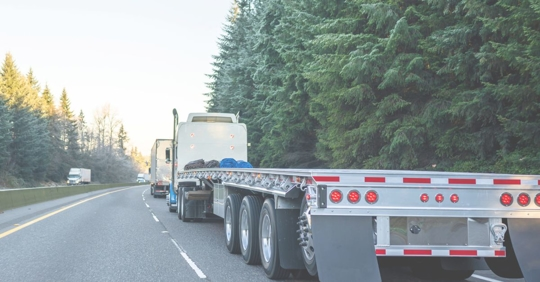The video showcases the dedicated team of attorneys at Fulmer Sill as they engage with clients and collaborate in their Oklahoma City office. Scenes highlight their commitment to providing top-notch legal services in their local community.
New “Rear Impact Guard” Standard to Protect Against Underride Accidents

Any type of accident involving a large truck can prove to be disastrous. Underride accidents, in particular, are known to be especially deadly. On November 15, 2021, the Bipartisan Infrastructure Law (BIL) was signed, which includes new rear impact guard standards for large trucks. In this blog post, we will discuss what these new measures are and how they work to protect passenger car drivers.
What is an Underride Accident?
An underride accident occurs when the front end of a passenger vehicle slides underneath the back of a large truck due to its size difference. These collisions often occur at high speeds and result in serious injuries or fatalities due to height difference between semi trailers and passenger vehicles. Unfortunately, underride accidents have killed many people over the years and are one of the deadliest types of truck accidents. According to the U.S. Government Accountability Office, from 2008 to 2017, an average of 219 fatalities were a result of underride accidents.
New Rear Impact Guard Standards
Rear guards have been required on semi-trucks since the 1950s. However, the 2021 Bipartisan Infrastructure Law has set new rear impact guard standards for all large trucks weighing more than 10,000 pounds. The new standards require larger and stronger guards on the backs of trailers to prevent severe underride accidents from occurring.
The guards must also be able to withstand a collision with a passenger vehicle traveling 35 miles per hour without failing or breaking off completely. This is an increase from 30 miles per hour previously mandated by federal safety regulations.
As part of the mandatory annual inspection that each semi-truck and trailer is required to undergo, the Federal Motor Carrier Safety Administration now requires confirmation of compliance with this new safety standard. Failure to have the required rear underride protection installed can result in the vehicle being taken out of service and result in significant fines to the trucking company and the driver.
The Benefits Of New Standards
Increasing the strength and size requirements for rear impact guards on trailers allows for better protection against underride collisions between passenger vehicles and trucks. With guards that can withstand higher speeds without failing or breaking off completely, there is less chance that an underride accident will occur, resulting in fewer deaths and injuries caused by these collisions each year.
The BIL also created an underride committee whose purpose is researching and analyzing data relating to side-underride accidents to determine whether or not newer standards need to be put into place. Inexpensive and life-saving equipment, such as the IIHS testing AngelWing™ are currently available to trucking companies and trailer manufactures, though they are not currently required and the trucking industry has been slow to adopt such safety equipment.
The National Highway Traffic Safety Administration is doing further research on the development and design of underride guards that can withstand collisions at 65 miles per hour. Current standards will be reevaluated in a couple of years.
How an Oklahoma City Car Accident Attorney Can Help
If you or someone you know has been involved in an underride accident, it is important to seek legal help from an Oklahoma City car accident attorney at Fulmer Sill. An experienced car accident lawyer will be able to investigate the crash, identify any potential negligence that contributed to your injury and fight for the compensation you deserve.
If you were injured in a truck accident, call us today at (405) 510-0077 or fill out our form online.



